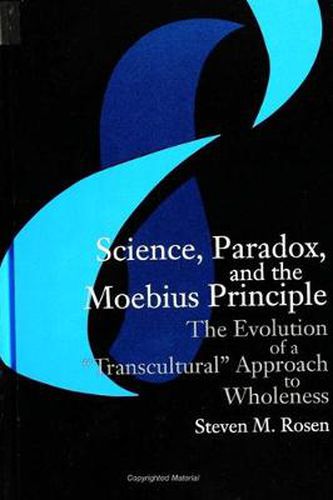Readings Newsletter
Become a Readings Member to make your shopping experience even easier.
Sign in or sign up for free!
You’re not far away from qualifying for FREE standard shipping within Australia
You’ve qualified for FREE standard shipping within Australia
The cart is loading…






Science, Paradox, and the Moebius Principle confronts basic anomalies in the foundations of contemporary knowledge. Steven M. Rosen deals with paradoxes that call into question our conventional way of thinking about space, time, and the nature of human experience. Rosen’s contribution is unique in at least five respects: 1) He provides an unparalleled integration of modern theoretical science and contemporary phenomenological thought. 2) He features a section of dialogue with David Bohm, who contributed greatly in fields of major concern to the book. 3) He sets forth a process theory and philosophy, presenting a concept in which space, time, and consciousness undergo a continuous internal transformation and organic growth. 4) He furnishes a highly specific account of dialectical change, employing geometric forms that bring the dynamics of paradox into focus with unprecedented clarity. 5) He is transdisciplinary and provides transcultural bridges between the two cultures of science and the humanities.
$9.00 standard shipping within Australia
FREE standard shipping within Australia for orders over $100.00
Express & International shipping calculated at checkout
Science, Paradox, and the Moebius Principle confronts basic anomalies in the foundations of contemporary knowledge. Steven M. Rosen deals with paradoxes that call into question our conventional way of thinking about space, time, and the nature of human experience. Rosen’s contribution is unique in at least five respects: 1) He provides an unparalleled integration of modern theoretical science and contemporary phenomenological thought. 2) He features a section of dialogue with David Bohm, who contributed greatly in fields of major concern to the book. 3) He sets forth a process theory and philosophy, presenting a concept in which space, time, and consciousness undergo a continuous internal transformation and organic growth. 4) He furnishes a highly specific account of dialectical change, employing geometric forms that bring the dynamics of paradox into focus with unprecedented clarity. 5) He is transdisciplinary and provides transcultural bridges between the two cultures of science and the humanities.